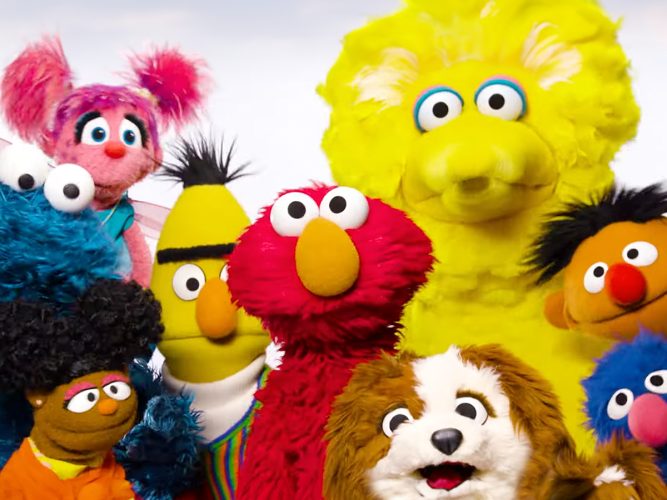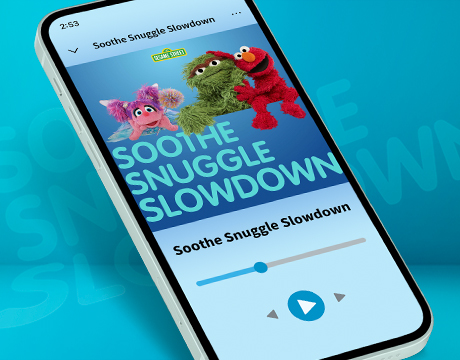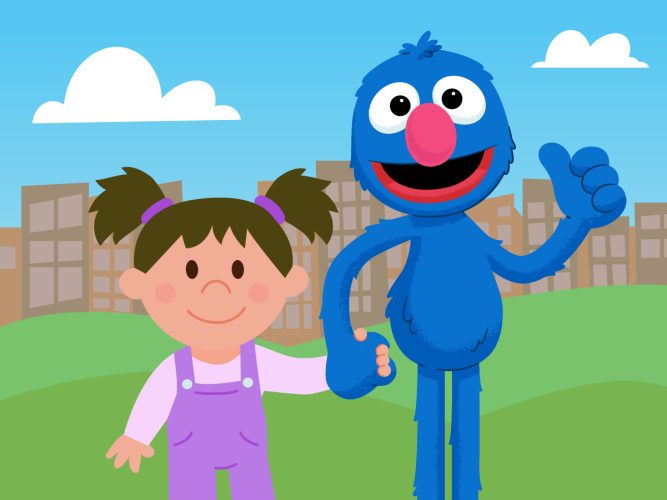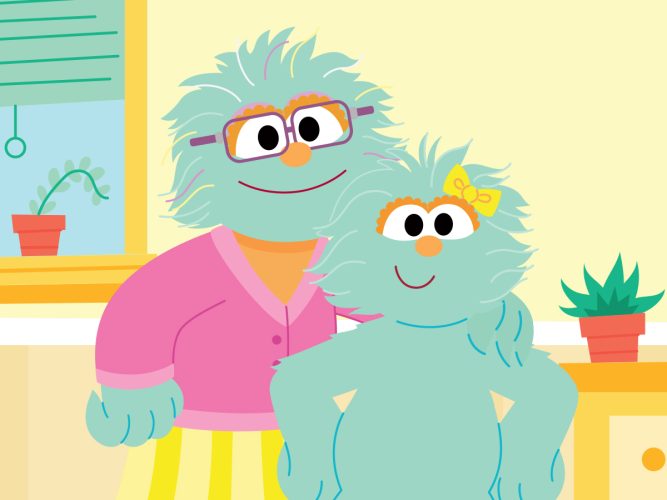
Caring for My Brain: Bedtime Meltdown
When children don’t get enough rest, their big feelings may feel even bigger… and less manageable!
Explain the brain to children: Our brains are inside our heads. Our brains let us learn, listen, talk, imagine, read, play, move, and so much more. Our brains help us feel, name, and talk about our feelings. Our brains can help us calm our bodies down.
Then tell children that when we get enough sleep, we’re taking care of our brains. Watch the video together. From time to time, you can help further explain or emphasize the ideas in the video by saying things like:
- When we don’t get enough rest, big feelings may feel even bigger.
- Just as our bodies and brains need food to give us energy for the day, our bodies and brains need sleep.
- Getting enough sleep and rest makes it easier to learn and play. Giving our bodies rest helps give us the energy to do the things we love… and to feel good while we’re doing them!
- Not getting enough sleep can make us feel grumpy or tired.
- If we need more sleep, we can take a rest during the day. Quiet “resting” time is important!
- You need more sleep than grown-ups because your brain is growing fast.
- Our brains work a little differently when we sleep—one way is that they let us dream!
Later, on your own, consider these tips:
- Set aside special time to relax with your child by playing games that invite restfulness. For example, when playing outside, take a break by lying in the grass to look at shapes in the clouds, or pretend to be a snail, turtle, or plant.
- At bedtime, relax together and take turns sharing the best parts of your day and what you’re most looking forward to tomorrow.
- Invite your child to help make a plan for wind-down bedtime routines like choosing a storybook. Structure helps children feel secure and relaxed, which can lead to better sleep.

Hum Along to Sunny Days With Elmo and Friends
A video about the power of humming.

Mindful Caregivers
Practicing mindfulness is a great way to slow down and reset.

What Mental Health Specialists Want Parents to Know About Anxiety
An article for parents about childhood anxiety

When You’re Concerned About Your Child’s Mental Health
An article for parents concerned about children’s mental health.

Soothe Snuggle Slowdown: Songs and Strategies for Restful Sleep
This curated playlist helps little ones (and their tired grown-ups) relax and unwind! A mix of mellow tunes sets the mood for naps, bedtime… or just some much needed down time.

Components of Community: Creating Social Connections to Address Mental Health

Components of Community: The Science of Kindness
Explore ways to connect and foster kindness in everyday life.
